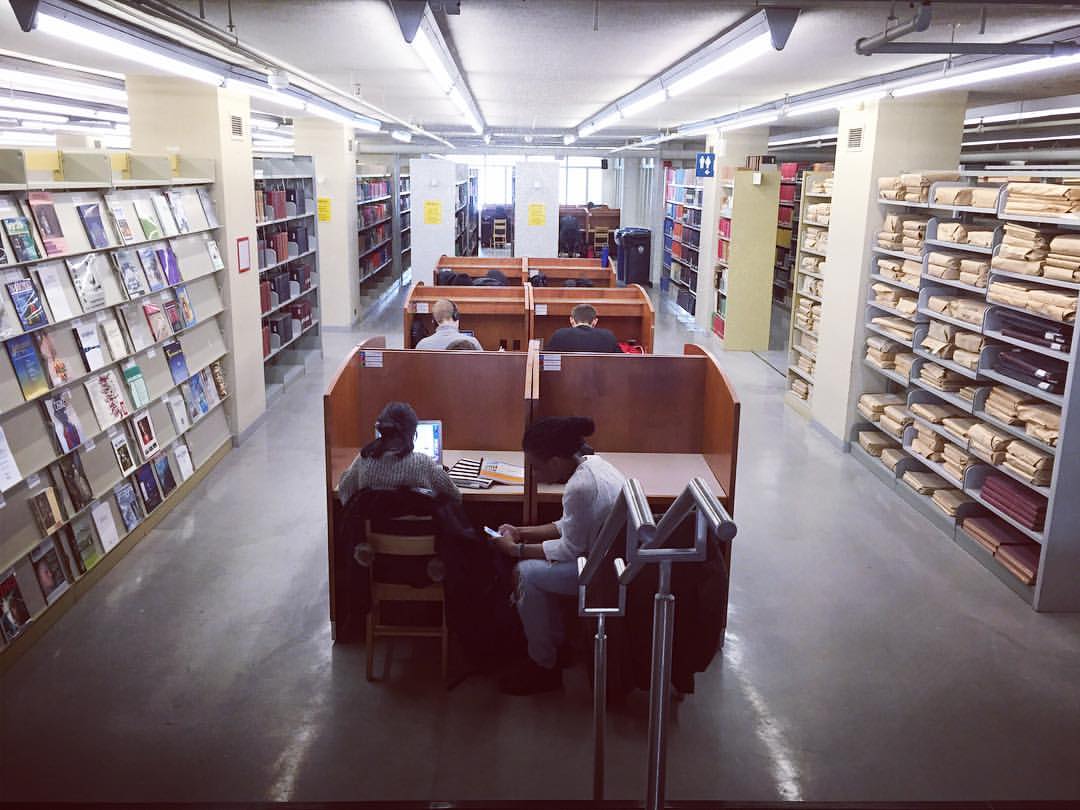
Feeling the crunch
Supporting students at the Long Night Against Procrastination and throughout the year
As the end of the winter term approaches students often feel the weight of assignments and upcoming exams pulling them to the ground.
The good news is that there are a number of supports available to help students get through it all. Events like the Long Night Against Procrastination provide a space for students to study and work on assignments.
 The Long Night Against Procrastination (LNAP) is an international all-night event that started in Germany. The event at the University of Manitoba is run by the Academic Learning Centre and Libraries with UMSU and is devoted to combating procrastination by providing a relaxed and quiet environment for students to write and study. This term’s event will take place on March 23, 2016 in the Elizabeth Dafoe Library from 10 pm to 8 am on March 24. During the event there will be one-on-one consultations with librarians and writing tutors and activities to help students stay alert.
The Long Night Against Procrastination (LNAP) is an international all-night event that started in Germany. The event at the University of Manitoba is run by the Academic Learning Centre and Libraries with UMSU and is devoted to combating procrastination by providing a relaxed and quiet environment for students to write and study. This term’s event will take place on March 23, 2016 in the Elizabeth Dafoe Library from 10 pm to 8 am on March 24. During the event there will be one-on-one consultations with librarians and writing tutors and activities to help students stay alert.
Katie Leitch is a U of M grad who also works as a writing tutor with the Academic Learning Centre. She says LNAP is an important event for students because it serves as a reminder to the services the centre offers year-round, while providing them with a supportive place to study and prepare for their final assignments and exams.
“I look forward to spending my seventh consecutive LNAP working with my colleagues at the Academic Learning Centre as well as interacting with students who make appointments to see us. It is an honour to work alongside students and to help them learn the skills that are necessary for achieving their goals,” says Leitch.
This term’s LNAP includes technology assistance from CATL, as well as support from Student Advocacy, the Peers group, Let’s Talk Science, a de-stress group and student advisors in addition to writing tutors and librarians who have always participated.
The gathering of students pulling all-nighters in the Dafoe Library isn’t just about getting work done however. Trevor Lehmann is a student advisor and has helped students during LNAP for a few years. He says the event also creates a sense of solidarity among students.
“I really think it’s a great idea. This is often a period of high stress so this is a way to get students out and communally work on projects. It’s one way to normalize the crunch everyone is under. When students have all these deadlines coming up, it’s a nice way to get some perspective on the situation,” says Lehmann.
The Academic Learning Centre plays an important role in LNAP by providing students with resources for learning. It provides tutors at the event to help students with their written assignments and help them improve their study habits. The goal of the service is to help students develop skills that will allow them to succeed when working independently. This is an important resource because it helps students gain confidence in their writing and studying which, in turn, helps them become more successful in their studies.
“Many students struggle with procrastination for a variety of reasons including difficulties transitioning into university or between academic fields, insecurities relating to writing and learning, or challenges in the many other complex facets of student life,” says Leitch. “In my experience, being a student can also be extremely isolating and lonely, and it can be difficult to find spaces to study alongside others late into the evening or early in the morning. This can be a challenge for students who focus best at night, or for those who have families and full-time jobs that restrict their studying hours.”
LNAP addresses many of these concerns by providing a number of important on-site resources for students throughout the night. As a result, the event not only encourages students to get started on their assignments early, but also actively demonstrates support systems that are available to them throughout the year.
“During the regular academic year we also offer one-on-one tutoring with peer tutors or instructors, online tutoring, course-based tutoring, study skills tutoring, supplemental instruction, and a variety of workshops on writing and learning,” says Leitch.
All of these supports, both during LNAP as well as those available year-round are important for building confidence and keeping students engaged with their studies.
“There are many studies out there that show students perform better when they feel connected to faculty and staff,” says Lehmann. “These types of things can help in the long term because students know help is there.”







Anything, such as this Long Night Against Procrastination, which encourages students to stay up all night to deal with previous poor study habits seems to be a big mistake. Why is the University encouraging students to work on their studies when they should be sleeping?
In its place I would recommend programs to promote proper study habits.
Another possibility is to dedicate the day before Good Friday to be a day free of classes and tests and have LNAP that day during the daytime.
Hi Will. Thanks for your comments. We’ve passed them onto the event organizers who have taken them into consideration.
How many students typically attend throughout the night?
This past fall, approximately 480 students attended throughout the night.